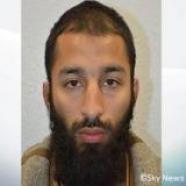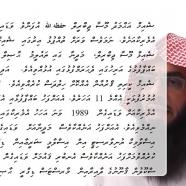Ahmad Musa Jibril is an Arab-American Islamist preacher who has reportedly influenced Westerners to fight in the Syrian conflict.* A 2014 report by the London-based International Centre for the Study of Radicalisation (ICSR) named Jibril as one of the most influential religious figures among foreign fighters in Syria.*Joseph A. Carter, Shiraz Maher, and Peter R. Neumann, “#Greenbirds: Measuring Importance and Influence in Syrian Foreign Fighter Networks,” International Centre for the Study of Radicalisation and Political Violence, April 22, 2014, https://icsr.info/wp-content/uploads/2014/04/ICSR-Report-Greenbirds-Measuring-Importance-and-Influence-in-Syrian-Foreign-Fighter-Networks.pdf. x Jibril “encouraged his students to spread Islam by the sword, to wage a holy war, to hate and kill non-Muslims,” according to his 2005 U.S. sentencing memo on fraud charges.*
From his home in Michigan, Jibril’s online lectures and tweets advocated a Salafist version of Islam that praised jihad, although he has been careful not to specifically call upon his followers to join jihadi groups. The 2014 ICSR report found that Jibril “adopts the role of a cheerleader: supporting the principles of armed opposition to Assad.” Jibril spent almost seven years in prison on bank fraud, mail fraud, money laundering, and related charges before he was released on probation in 2012. A federal judge restricted Jibril’s Internet and social media access in June 2014 after Jibril violated his probation. The restrictions, however, expired in March 2015.*
Though the number of foreign fighters traveling to Iraq and Syria has decreased since the ICSR’s 2014 study, Jibril’s message continues to resonate with extremists. His lectures remain freely available on Twitter, YouTube, and other social media platforms. Despite Jibril’s publicized role in radicalizing ISIS fighters, YouTube shockingly declared in June 2017 that his content does not violate the company’s terms of service.* That same month, Khuram Shazad Butt, Rachid Redouane, and Youssef Zaghba killed eight people and wounded almost 50 more in a terror attack on the London Bridge. Butt reportedly radicalized watching Jibril’s videos online.*
Jibril had not returned to his digital pulpit as of December 2021, but his Twitter feed, video lectures, and writings remain online. His Twitter account still includes more than 34,000 followers as of December 7, 2021, a drop of 4,000 from February 2019. More than 236,000 people followed his Facebook account, which had been deleted as of December 2021. And his YouTube account had more than 19,000 subscribers and had received more than 1 million views as of December 7, 2021.
CEP has found multiple social media accounts created by Jibril’s self-proclaimed students who continue to spread his interpretations of Islam by retweeting and linking to his past statements and videos. On December 1, 2021, students running Jibril’s Telegram channel posted Jibril had agreed to take questions from the more than 2,740 followers of the channel. According to the post, Jibril would record video responses to selected questions.* Jibril’s followers have also created accounts on Instagram, Twitter, YouTube, and Facebook.* As of December 7, 2021, student-run Jibril accounts had accrued 4,471 followers on Twitter,* 2,110 followers on YouTube,* 107 followers on Facebook,* and 27,700 followers on Instagram.* Each account explicitly stated it was run by Jibril’s students.Key Points

Ahmad Musa Jibril became one of the most followed English-language preachers by foreign fighters in 2014 and has since remained an influential jihadist voice.

Jibril's lectures have helped radicalize dangerous Islamists like Khuram Shazad Butt, one of three London Bridge attackers who killed eight and wounded almost 50 on June 3, 2017.

Despite Jibril's retreat from social media since 2014, Jibril has inspired multiple social media accounts that continue to promote his propaganda.













